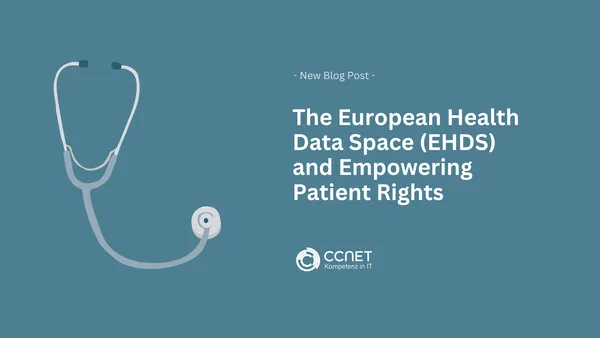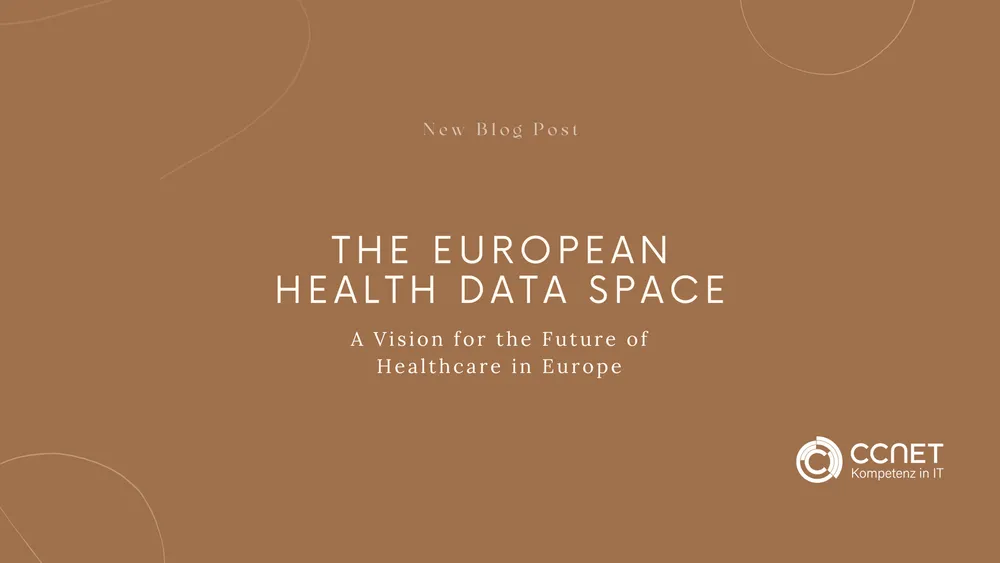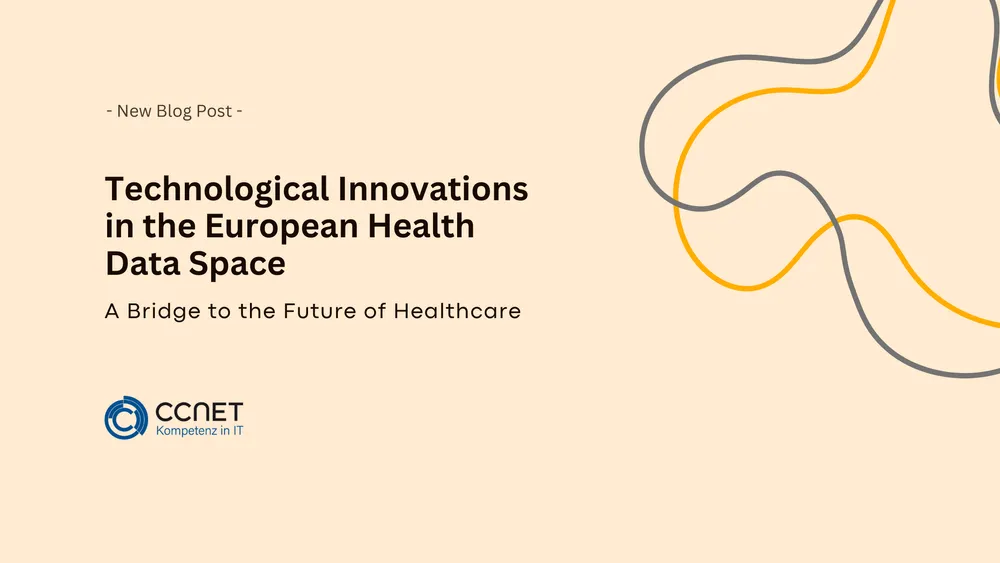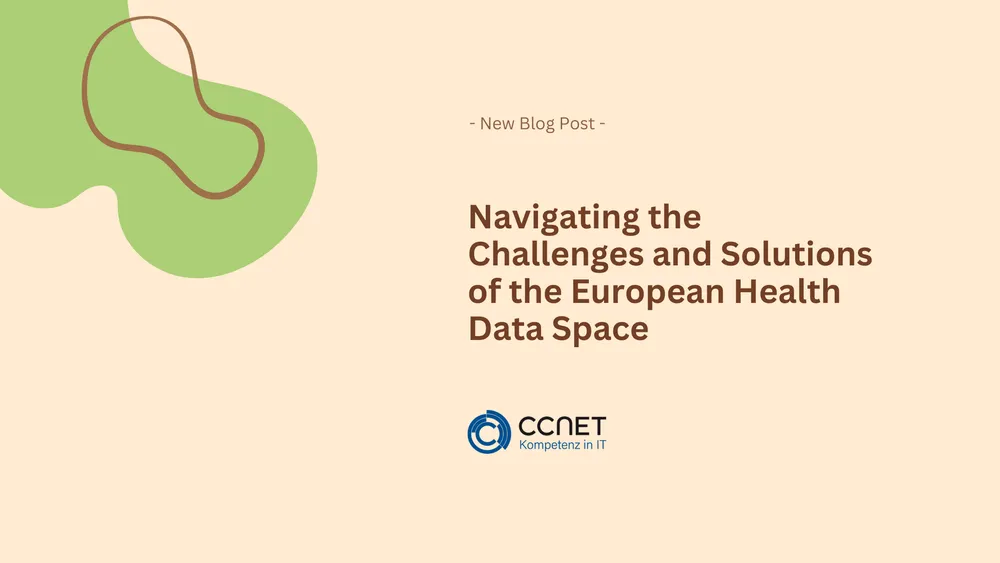
CCNet
Sep 25, 2024 • 2 min read

The European Health Data Space (EHDS) and Empowering Patient Rights
In the constantly evolving landscape of healthcare, the European Health Data Space (EHDS) stands as a central element of digital transformation, aiming not only to enhance the accessibility and quality of healthcare but also to put the strengthening of patient rights at the forefront. In an era where patient protection and autonomy are more crucial than ever, the EHDS opens new avenues to improve patients' control over their health data and strengthen their role within the healthcare system. This blog post sheds light on the impact of EHDS on patient rights and examines how this initiative contributes to promoting patient-centered healthcare in the European Union.
The Vision of EHDS: Empowering Patients
EHDS is founded on the principle that every citizen should have the right to securely control and utilize their health data. This principle is crucial as it not only enables patients to make informed decisions about their treatment but also to play an active role in their own healthcare and the broader health system. By facilitating secure access to and exchange of health data, EHDS opens up new possibilities for personalized medicine and enhances the efficiency of healthcare services.
Strengthening Data Protection Rights
One of the core objectives of EHDS is to strengthen patients' data protection rights. In line with the European Union's General Data Protection Regulation (GDPR), EHDS provides robust mechanisms to protect patients' privacy and secure their data from unauthorized access and misuse. This includes the right to transparency regarding the use of their data, the right to access their own health information, and the right to give or revoke consent for the use of their data.
Promoting Transparency and Trust
EHDS places a strong emphasis on transparency in data processing, which is crucial to building patients' trust in digital healthcare services. By providing patients with clear information about who has access to their data and for what purposes it is used, EHDS fosters an environment where patients feel secure in releasing their data for their own care and medical research.
Facilitating Patient Mobility
Another significant advantage of EHDS is the promotion of patient mobility within the EU. By facilitating access to and exchange of health data, patients can receive medical care across borders without compromising the continuity of their treatment. This is particularly valuable for patients seeking specialized treatments or opting for treatment in another EU member state.
Challenges and the Way Forward
While EHDS offers groundbreaking potential for strengthening patient rights, implementation and practical execution face challenges. These include ensuring interoperability between member states' healthcare systems, protecting data from cyber-attacks, and ensuring that all citizens, regardless of their technological understanding, can benefit from the advantages of EHDS.
Conclusion
The European Health Data Space represents a significant advancement in how health data is handled in the EU, with a strong focus on strengthening patient rights and autonomy. By enabling secure access to and exchange of health data, EHDS opens up new opportunities for improved and personalized patient care. While the challenges in implementation are considerable, through continuous collaboration, innovation, and a strong focus on patient needs, EHDS can fulfill its promise of patient-centered healthcare in Europe.


